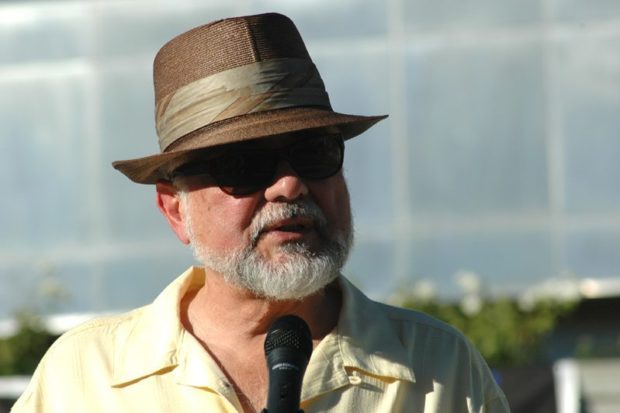
By Robert Navarro
 My friend Tom Quinn has provided a rousing criticism of the movie We Steal Secrets: The Story of WikiLeaks. Tom knows more about the U.S. security state than anyone I know, and what he does not know, he suspects. Nonetheless, I appreciated the film. I did not expect a political or even analytic deconstruction of our mega-surveillance and hyper-secret state. I had not seen the documentary but had heard that it was heavy on the side of personal narrative.
My friend Tom Quinn has provided a rousing criticism of the movie We Steal Secrets: The Story of WikiLeaks. Tom knows more about the U.S. security state than anyone I know, and what he does not know, he suspects. Nonetheless, I appreciated the film. I did not expect a political or even analytic deconstruction of our mega-surveillance and hyper-secret state. I had not seen the documentary but had heard that it was heavy on the side of personal narrative.
Julian Assange is a public figure by his own design, and there’s certainly nothing wrong with that. But, whether one likes it or not, where controversy swirls the media will always make public not only the person’s cause or civic endeavors but also his or her personal life, and the allegations regarding Assange’s private actions were well known before the movie. Prior to seeing it, I did not know much about the other focus of the movie, Bradley Manning, and his story was the more compelling. In terms of credibility, the Manning story benefitted from heavy reliance on Manning’s own words to describe his tumultuous journey in releasing his trove of documents.
Part of Tom’s criticism is the movie’s purportedly undue and deceptive reliance on the actual scoundrels who direct the security state, mainly former CIA/NSA Director Michael Hayden, during whose interview the documentary’s title is drawn. He plainly states that the business of the U.S. security apparatus is to steal secrets. In itself, that is not controversial, no matter what one thinks of what is actually done by our spy masters.
WikiLeaks does not “steal” secrets, but it publicizes secrets or confidential material someone else—for a cause or principle—has disgorged without permission. In a courageous act of civil disobedience, Manning stole secrets in the service of a greater good. And with regard to Hayden, because of what I brought to the movie in terms of my assumption of government’s mendacity and malfeasance, I was not swayed in the least bit by the official talking heads and thought their interviews portrayed them in a rather bad light by simply letting them talk. As a former private investigator (Tom is an excellent practicing investigator) and a lawyer, I’ve found the more the scoundrel talks the worse he sounds, and many a documentarian has used that technique.
I found Manning’s story actually added to his bravery and his importance in the drama surrounding the exposing of American high crimes and perfidy. The fact of sexual identity confusion is one that apparently many young people go through, and based on my own long-ago experience as a teenager and young adult in the Army, I cannot think of a more terrible place to deal with such a fundamental personal conflict than in the U.S. military, which operates with the subtlety of a truncheon.
Nor did I read Manning’s sexual identity issue as detracting at all from his act of conscience in revealing secrets; if anything, I think it added depth to the issue. I’m sure that those predisposed to finding Manning a traitor, by some leap of illogic, will use it as evidence of an evil intent. The fact that Manning felt doubly isolated, by his need to tell the truth about which he had unique access and his personal turmoil, was a deeply affecting story. In addition, a powerful element of the movie’s portrayal of Manning was the interview with Adam Lamo, who turned in Manning, and looked and sounded thoroughly tortured by his cowardly betrayal.
While perhaps the movie unnecessarily went out of its way to cloud Assange’s reputation (not WikiLeaks in and of itself, but Assange’s), in my view and maybe only because of my own sympathies, I felt the film made Manning’s (continuing) heroism all the more remarkable. I now see his extraordinary, punishing incarceration and prosecution as not just predictable official retaliation, oppression and hypocrisy but also a criminal homophobic hysteria. Obama, of course, has recently announced that he will bestow the Medal of Freedom to Bill Clinton, who gave us punishing welfare reform, the Defense of Marriage Act, draconian restrictions on prisoners’ abilities to pursue justice and let loose the dogs of Wall Street, whereas Manning’s act in resurrecting truth will likely garner him decades of punishment. Jesus wept.
Hopefully, viewers will argue this documentary’s demerits and value, and, whatever their views, the issue of war crimes, secrecy and the government’s war against truth will be alive and debated. Also, hopefully, it will spur a filmmaker to make the deserving documentary that Tom had hoped for. I want to see that film also, but nonetheless I stand by the decision of Fresno Filmworks and the sponsors to present this film.
*****
Robert Navarro is a criminal defense and civil rights attorney and vice president of Fresno Filmworks. Contact him at robrojo@att.net.
